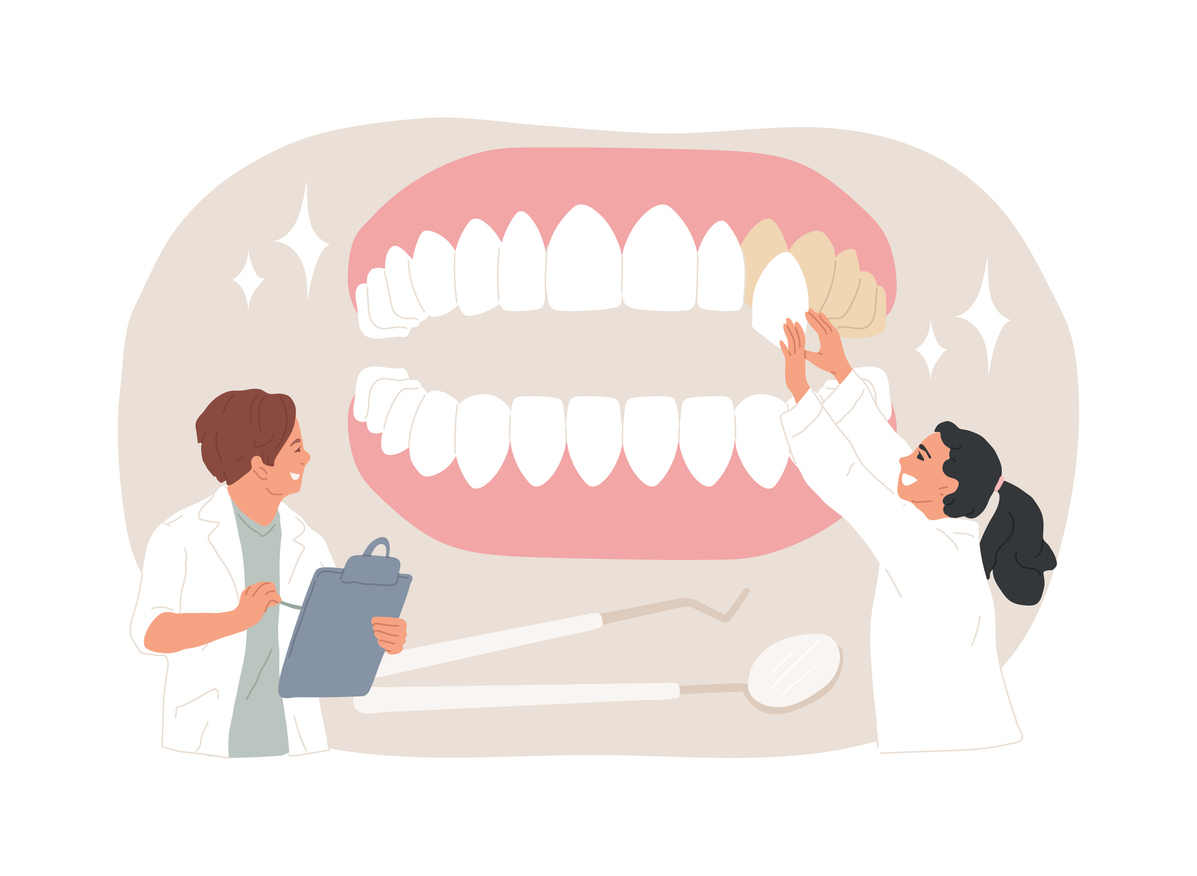Can You Floss With Veneers?
Veneers are a cosmetic dental solution that can dramatically change the appearance of your smile in just a couple of dental visits. They can solve issues such as stained, discolored, chipped teeth or teeth that are uneven in size and shape. But how do you take care of your oral health when wearing veneers? Can you floss with veneers? In this article, we answer this question and give other veneer care tips to make your dental restoration last.
Can You Floss With Veneers?
The short answer is yes. You can and should floss with veneers, as it is essential for maintaining good oral hygiene and avoiding cavities and gum disease. Both of these dental health problems can lead to the removal of your veneers to treat the issues.
Nevertheless, flossing with veneers can be challenging for some people. Let us look at proper flossing techniques with dental veneers:
- When flossing with dental veneers, you must be careful and gentle to avoid accidentally dislodging them. Dentists recommend using waxed floss and moving it carefully up and down between your teeth. Do not push hard into the gums or snap the thread against your teeth.
- Additional tools, such as floss threaders and interdental brushes, can help streamline the process of flossing with veneers. Ask your dentist to recommend the right size of an interdental brush.
- It is also helpful to add a water flosser to your hygiene routine when wearing dental veneers. Although a water flosser can not replace traditional flossing or brushing your teeth, it has proven very effective as an additional tool. A water flosser uses a stream of pressurized water to loosen food debris and plaque on and between your teeth, making it easier to remove them with a traditional flossing thread and a toothbrush.
Other Veneer Care Tips
As previously mentioned, flossing is essential when wearing dental veneers, but it is not the only thing you need to do to preserve the health of your teeth and the appearance of your veneers. Below, we discuss our essential tips for wearing veneers.
Brushing with Dental Veneers
Brushing with dental veneers is similar to brushing your natural teeth: you should brush twice a day, making sure to clean your teeth on both sides and along the chewing surface. Do not use abrasive or whitening toothpaste on your veneers, as it can scratch their surface and prompt staining and discoloration. Instead, opt for a fluoride toothpaste that will strengthen your teeth and help reduce the amount of bacteria in the mouth.
A Diet with Dental Veneers
Porcelain veneers are stain-resistant and resilient, but they still can get discolored if staining foods and beverages is a big part of your diet. To preserve the appearance of your veneers, we recommend avoiding the following products:
- Soda and other drinks containing dye
- Artificially colored candies
- Red wine
- Brightly colored juices (grape, carrot, etc.)
- Berries
- Curry, paprika, and other brightly colored spices
- Black coffee and tea
- Beetroot and carrots
If you consume any staining foods or drinks, rinse your mouth or brush your teeth immediately after the meal, if possible.
Additionally, to avoid cracking or chipping your veneers, abstain from hard foods, foods that require significant biting force (for example, whole apples), or crunchy foods, such as crackers, nuts, etc.
The Importance of Regular Dental Visits
Visiting your dentist every six months for a check-up and a professional cleaning will help preserve the appearance of your veneers and ensure that any dental health issues are spotted and treated in time.
Even if you brush and floss thoroughly, some food debris and plaque are still likely to accumulate on your teeth and veneers over time. These substances can cause cavities and gum disease, but they also can make your veneers appear stained or discolored. If this happens, do not use over-the-counter whitening solutions, but consult your dentist. Often, a professional cleaning can significantly improve the appearance of dental veneers.
Make an Appointment Today
If you are considering getting dental veneers or need any of the veneer service procedures, do not hesitate to call our office and make an appointment with a reliable and experienced dentist. At the Smiles of Arcadia dental office, we will help you choose a cosmetic dental procedure that is suitable for your lifestyle and budget.




